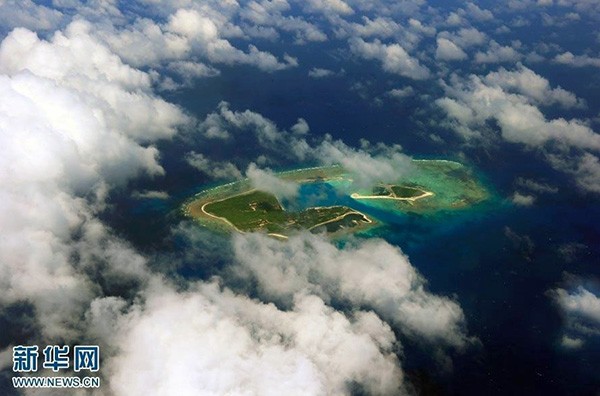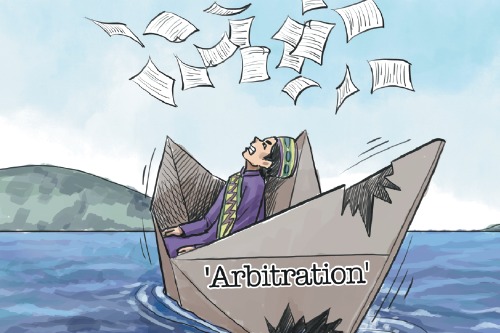Arbitration panel's ruling will backfire


|
| File photo of South China Sea. [Photo/Xinhua] |
The long awaited, though illegal, ruling of the Arbitration Panel of the Permanent Court is out finally. In response, the Chinese government has issued a strong statement reiterating China’s position that it will defend its territorial integrity in the South China Sea. The Filipino government sought the ruling of the Arbitration Panel of the Permanent Court to gain some advantage in its dispute over the South China Sea. Now it seems that the ruling will backfire in the end, and will only stiffen the Chinese government’s will and determination to defend its territorial integrity in the South China Sea.
The ruling has violated the established practice of the international law from the very beginning. When China expressed its opposition that it would not participate or accept its ruling, the panel lost all legal basis to exist, let alone make the ruling.
The reason that the panel dared to continue its existence and make the ruling, and challenge the territorial integrity of China, a permanent member of the UN Security Council, despite China’s repeated announcement of its position of non-participating and non-accepting its ruling, is because it served the strategic interests of the United States in the region.
Ever since the end of the Cold War, the US has been trying to undermine China’s rise in the region and in the world by encouraging the Philippines and other countries to challenge China’s long-established sovereignty over the South China Sea and occupy some of the islands claimed by China. The Philippines’ decision to seek the ruling through the panel would prove counter-productive. Apparently, it underestimated China’s determination to defend its territorial integrity, and at the same time overestimated the US ability to help Philippines gain territorial advantage. It is in the US strategic interests to see Philippines challenge China and cause trouble for China. But it is not in the US national interests to fight for Manila’s territorial gain. Philippines cannot count on the US support in its disputes with China in the long run.
The US instigation of Philippines and others to challenge China’s territorial integrity will become a case of lifting a stone to strike its own foot in the end as well. The US hoped to intimidate China into submission by sending gunboats and carriers to the South China Sea to challenge China’s territorial claims there. But US threatening activities at China’s front door has aroused Chinese people’s anger and indignation. The Chinese people want the government to respond firmly to the American threat. In response to the popular demand, Chinese government has been building its military capabilities in the South China Sea ever since Philippines unilaterally sought arbitration on the South China Sea disputes.
Apparently, the US also underestimated China’s determination to defend its own territorial integrity. The current Chinese government under President Xi Jinping will not allow the US to blackmail Chinese people through its policies of sending gunboats and carriers to the South China Sea. As Dai Bingguo, the head of the Chinese government delegate to Washington, said recently that US policy of sending gunboats and carriers to the South China Sea will not intimidate China. Even if the US sends all its ten carriers to the South China Sea, it will not be able to scare China into submission.
Now the ball is back in Philippines and US court. What can Philippines and US do in face of China’s strong defiance? In today’s world, a country can only claim a territory when it can effectively defend it. As China builds up its military capability in South China Sea, China’s will and ability to defend what it considers its territory will force any country, including the US, to think twice before they take any action. The age of using gunboats and carriers to scare China and the Chinese people is over. The ruling of arbitration panel of the Permanent Count will go down in history, as Chinese Foreign Minister Wang Yi stated, simply as a joke, and inadvertently strengthen China’s position in the South China Sea.
The author is a professor at Warren Wilson College, North Carolina, and a guest professor at Hebei University.
The opinions expressed here are those of the writer and don't represent views of China Daily website.
































